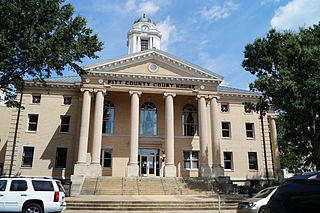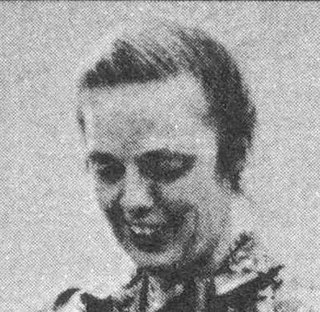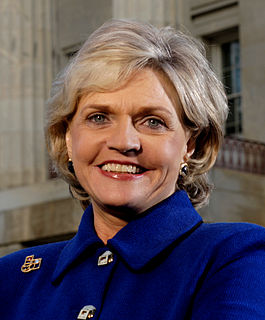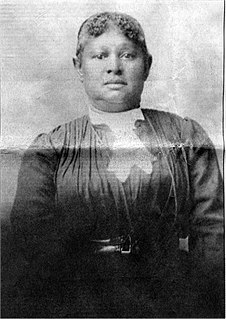Emma Dupree (July 4, 1897 - March 12, 1996) was an herbalist and traditional healer (sometimes called a "granny woman") in Falkland and Fountain, Pitt County, North Carolina.
Contents

Emma Dupree (July 4, 1897 - March 12, 1996) was an herbalist and traditional healer (sometimes called a "granny woman") in Falkland and Fountain, Pitt County, North Carolina.

Emma Dupree's parents, Pennia and Noah Williams, were formerly enslaved people. They had eighteen children, with the seventh child being Emma Dupree. [1] Born July 4, 1897, Emma Williams Dupree grew up on the Tar River and was known as the "woods gal" for her penchant for roaming the woods for herbs, and she was known collectively in her community as "that little medicine thing." Emma told an interviewer in 1979 that her mother remembered being "on the porch of the old Wooten's farm home when freedom came. She was 16 when Mr. and Mrs. Wooten walked out on that porch and told her she was 'as free as they were, but they loved her just the same.'"
Emma was married for one year to Ethan Cherry, a farmer. She divorced him and remarried another farmer, Austin Dupree, Jr., who was born in 1892. Emma and Austin moved to Fountain, NC in 1936 and had five children, whose ages in the 1930 U.S. Census are indicated in parentheses: Lucy (12), Herbert (9), John (5), Doris (3), and Mary (1). They remained married until his death at age 98. She died at home, at 3313 N. Jefferson St, Fountain, on March 12, 1996. [1]
She is buried at Saint John's Missionary Baptist Church Cemetery, in Falkland.
Emma Dupree's "garden-grown pharamacy" included sassafras, white mint, double tansy, rabbit tobacco, maypop, mullein, catnip, horseradish, silkweed and other plants from which she made tonics, teas, salves and dried preparations. These were cultivated in her yard and gathered from the banks of the Tar River. She told Karen Baldwin that she grew a special tree in her back yard, which she called her "healing berry tree." She explained, "Now that tree, I don't know of another name for it, but it's in the old-fashioned Bible and the seed for it came from Rome." She also told Baldwin of being an especially alert baby: "They said I was just looking every which way. And I kept acting and moving and doing things a baby didn't do. And I walked early. I was walking at seven months old, just as good and strong. When I got so I got out doors, I went to work. I was pulling up weeds, biting them, smelling in them, and spitting them out. And folks in them days, they just watched me, watched what I was doing." [2]

Pitt County is a county located in the U.S. state of North Carolina. As of the 2020 Census, the population was 170,243, making it the fourteenth-most populous county in North Carolina. Its county seat is Greenville.

Edgecombe County is a county located in the U.S. state of North Carolina. As of the 2020 census, the population was 48,900. Its county seat is Tarboro. Edgecombe County is part of the Rocky Mount, North Carolina, Metropolitan Statistical Area.

Bladen County is a county located in the U.S. state of North Carolina. As of the 2020 Census, the population was 29,606. Its county seat is Elizabethtown. The county was created in 1734 as Bladen Precinct and gained county status in 1739.

Greenville is the county seat of and the most populous city in Pitt County, North Carolina, United States; the principal city of the Greenville metropolitan area; and the 12th-most populous city in North Carolina. Greenville is the health, entertainment, and educational hub of North Carolina's Tidewater and Coastal Plain. The city's official population is 87,521people. In January 2008 and January 2010, Greenville was named one of the nation's "100 Best Communities for Young People" by the America's Promise Alliance. In June 2012, Greenville was ranked in the top ten of the nation's "Best Small Places For Business And Careers" by Forbes magazine. In 2010, Greenville was ranked twenty-fourth in mid-city business growth and development by Forbes Magazine.

Roy Allen Williams is an American retired college basketball coach who served as the men's head coach for the North Carolina Tar Heels for 18 seasons and the Kansas Jayhawks for 15 seasons. He was inducted into the College Basketball Hall of Fame in 2006 and the Basketball Hall of Fame in 2007.
Public folklore is the term for the work done by folklorists in public settings in the United States and Canada outside of universities and colleges, such as arts councils, museums, folklife festivals, radio stations, etc., as opposed to academic folklore, which is done within universities and colleges. The term is short for "public sector folklore" and was first used by members of the American Folklore Society in the early 1970s.

Woody Lombardi Durham was an American play-by-play radio announcer for the North Carolina Tar Heels football and men’s basketball programs from 1971 to 2011.

Sheila Kay Adams is an American storyteller, author, and musician from the Sodom Laurel community in Madison County, North Carolina.

Bess Lomax Hawes was an American folk musician, folklorist, and researcher. She was the daughter of John Avery Lomax and Bess Bauman-Brown Lomax, and the sister of Alan Lomax and John Lomax Jr.
The North Carolina Heritage Award is an annual award given out by the North Carolina Arts Council, an agency of the North Carolina Department of Natural and Cultural Resources, in recognition of traditional artists from the U.S. state of North Carolina. The award was created in 1989.

Margaret R. Yocom is a folklorist, and poet. Now emerita, she taught at George Mason University from 1977 to 2013 and founded the Folklore Studies Program there. She works in Maine.

Beverly Eaves Perdue is an American businesswoman, politician, and member of the Democratic Party who served as the 73rd Governor of North Carolina from 2009 to 2013. She was the first female governor of North Carolina.

Henrietta Phelps Jeffries was an African American midwife and a founding member of the Macedonia A.M.E. Church located in Milton, North Carolina.
Family folklore is the branch of folkloristics concerned with the study and use of folklore and traditional culture transmitted within an individual family group. This includes craft goods produced by family members or memorabilia that have been saved as reminders of family events. It includes family photos, photo albums, along with bundles of other pages held for posterity such as certificates, letters, journals, notes, and shopping lists. Family sayings and stories which recount true events are retold as a means of maintaining a common family identity. Family customs are performed, modified, sometimes forgotten, created or resurrected with great frequency. Each time the result is to define and solidify the perception of the family as unique.
Charles Harry Whedbee, was a noted lawyer, judge and author of local history and the lore, legends and ghost stories of the Outer Banks of North Carolina.
Robert Lynn 'Bobby' McMillon was an American traditional ballad singer, musician, and storyteller living in Lenoir, N.C. He was a 2000 recipient of the North Carolina Heritage Award.
Eva Wolfe was an accomplished basket maker from North Carolina. Wolfe was known for weaving rivercane baskets, a traditional type of Cherokee basketry. She earned special distinction for her accomplishments in doubleweave basketry, a difficult plaited basket weaving technique. She was honored with a number of awards for her achievements as an artist, including the Brown-Hudson Folklore Award from the North Carolina Folklore Society in 1988 and the North Carolina Heritage Award in 1989.
Erika Brady is an American anthropologist, writer, speaker, and radio show host. She is a past-president of the Kentucky Folklore Society Fellows and editor of the journal Southern Folklore.
Neal Hutcheson is an American filmmaker, photographer, and author. He has received three regional Emmy Awards for documentaries on regional culture, language, and identity. He has produced 14 television documentaries on topics such as Appalachian culture, heritage fisheries on the North Carolina Outer Banks, Cherokee language preservation efforts, African American vernacular speech, and climate change. Hutcheson’s most visible work has featured Popcorn Sutton, a moonshiner from Western North Carolina. Hutcheson works as a producer for the Language & Life Project at North Carolina State University and is a contributing producer to independent production companies Empty Bottle Pictures and Sucker Punch Pictures.
Michael Ann Williams is an American Folklorist, recognised for her research into vernacular architecture, particularly in Appalachia.